Search Images
Browse Content
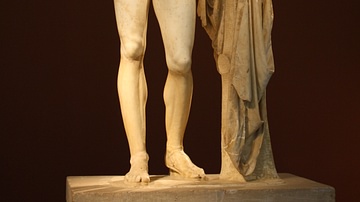
Image
Hermes
The Hermes of Praxiteles, from the temple of Hera, Olympia (340-330 BCE). The infant is Dionysos. Olympia Archaeological Museum.
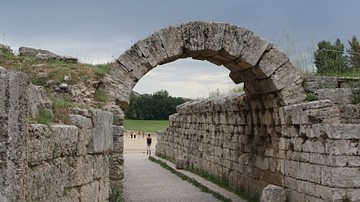
Image
Stadium Entrance, Olympia
The Krypte, which was the official entrance to the stadium of Olympia (200 BCE).
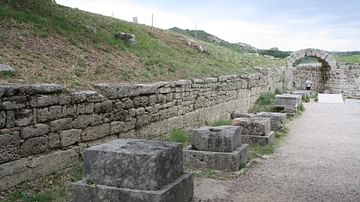
Image
The Zanes, Olympia
Stone bases of the Zanes of Olympia. These statues of Zeus were funded from fines from offending athletes in the Games. (4th century BCE).
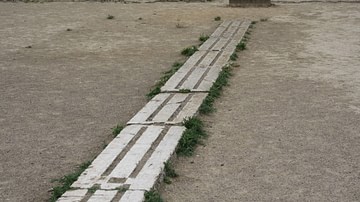
Image
Starting Blocks, Olympia
The starting line of the stadium in Olympia (4th century BCE). Athletes had to place their toes in the front grooves on the block.
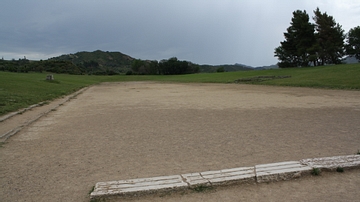
Image
Stadium of Olympia
The stadium of Olympia (present form: 5th century BCE) with the starting line. The capacity at its maximum was 45,000.

Image
Athens Acropolis
The Acropolis of Athens. Dominating the acropolis is the Parthenon, built between 447 and 432 BCE in the Age of Pericles, and dedicated to the city’s patron deity Athena.
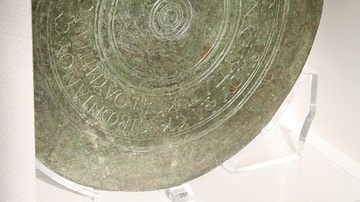
Image
Bronze Discus
An inscribed bronze discus from Olympia dedicated by Publius Asklepiades (After 241 CE). Olympia Archaeological Museum.
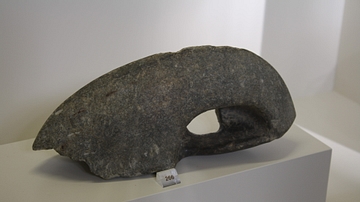
Image
Stone Halter
A jumping weight carried by athletes in each hand in the long jump event to gain distance (date unknown). Olympia Archaeological Museum.
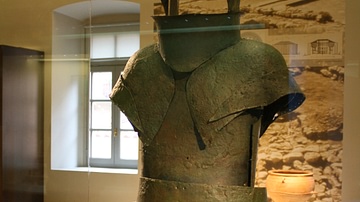
Image
Mycenaean Bronze Armour
Bronze armour and boar tusk helmet (15th century BCE) from a mycenaean cemetery in Dendra. Nafplio Archaeological Museum.
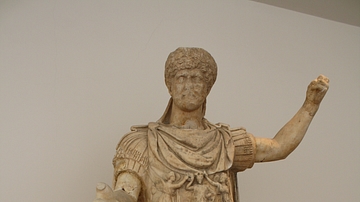
Image
Hadrian Statue, Olympia
A marble statue of emperor Hadrian (117-138 CE), Olympia Archaeological Museum. The corselet depicts Athena standing on the wolf of Rome between two figures of Nike.